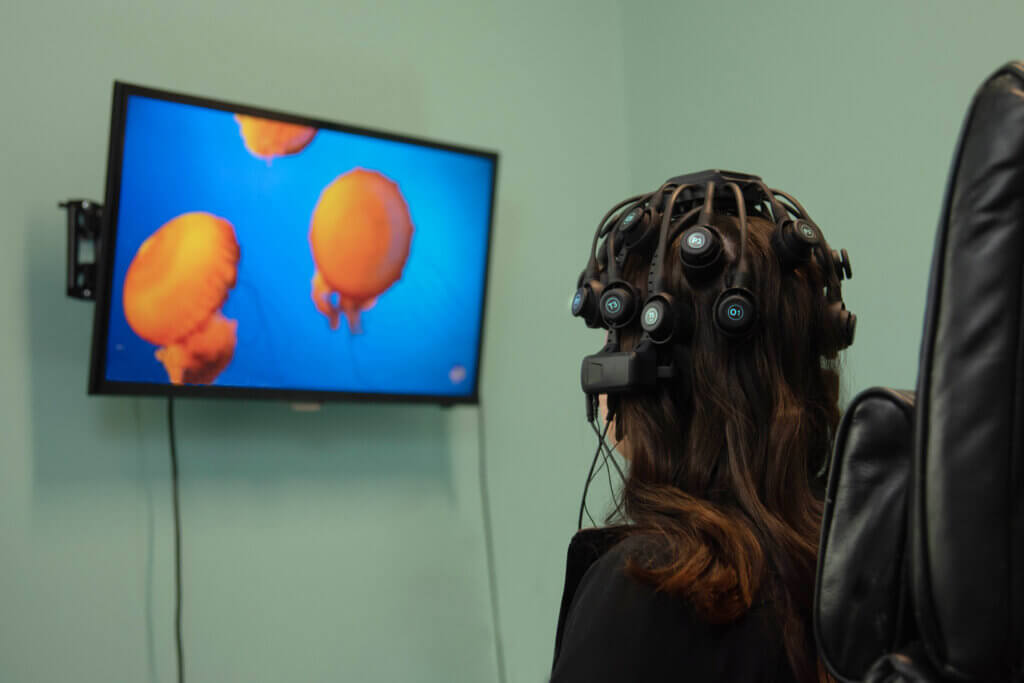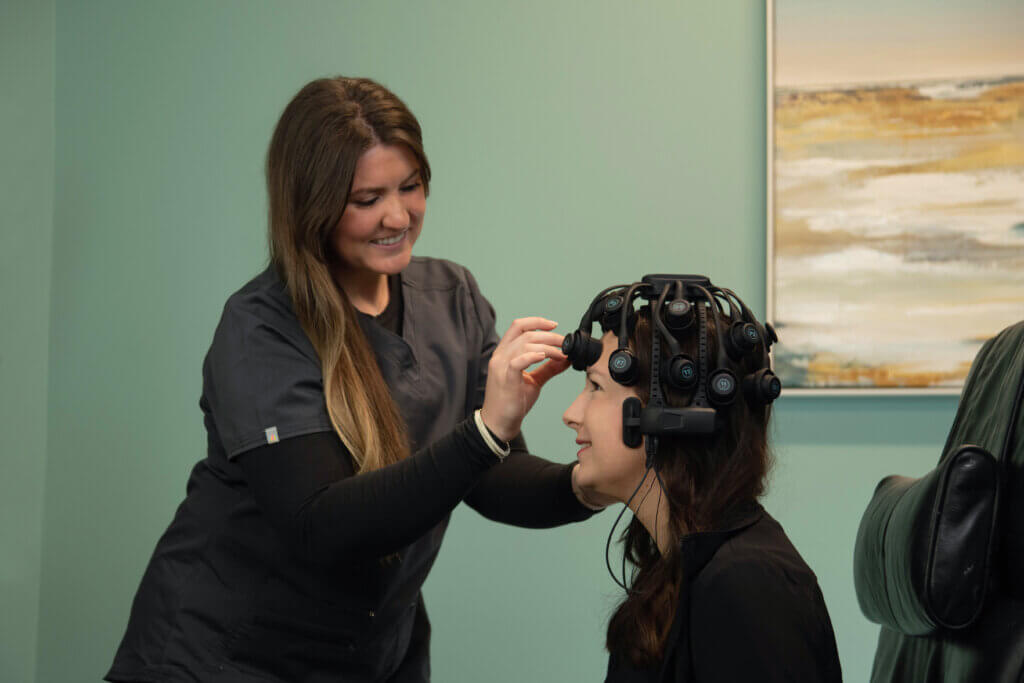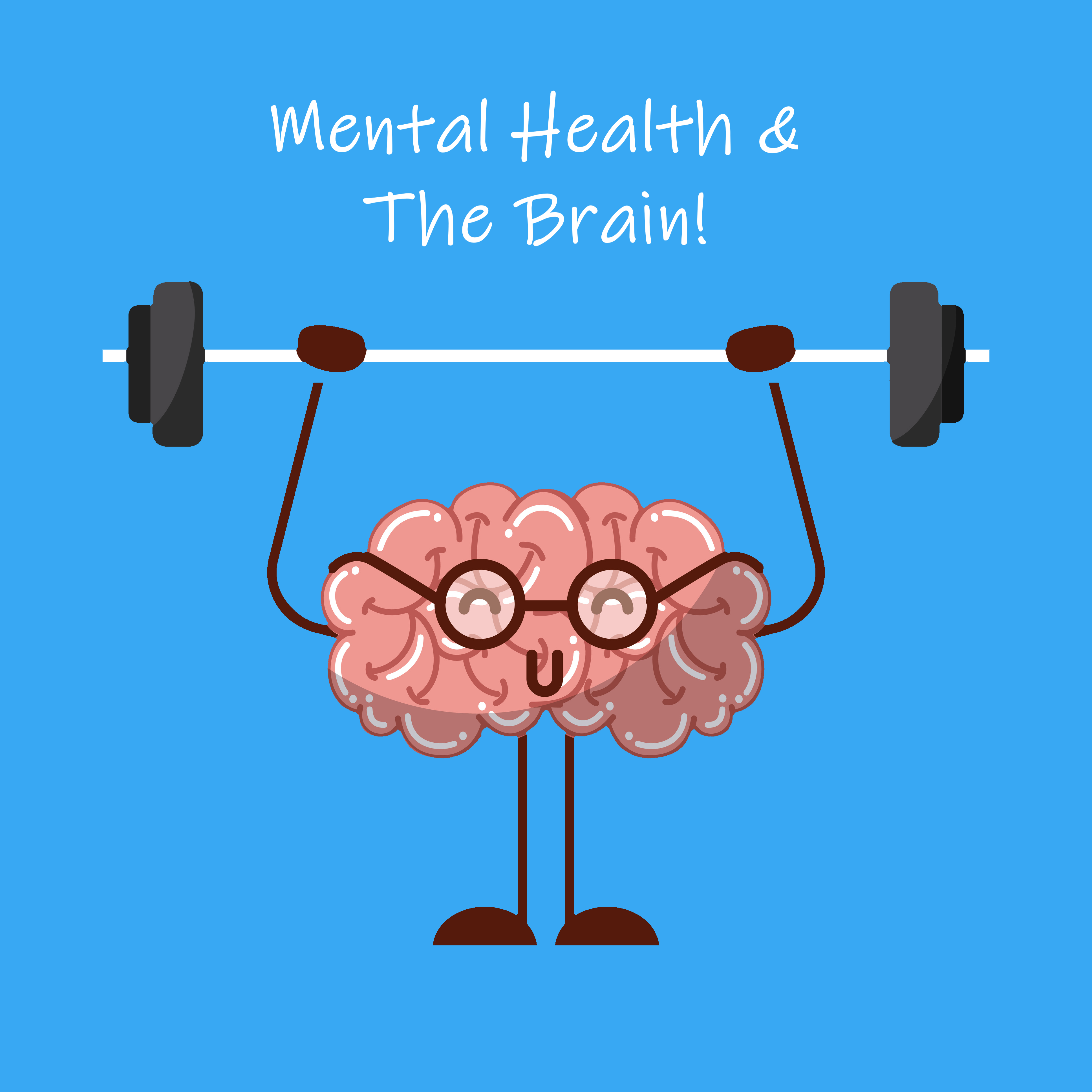Can Neurofeedback Therapy help my Anxiety/Depression?
In recent years, people have been much more open in their conversations surrounding mental health and it is clear we are in a mental health crisis. For those struggling with their mental health such as anxiety/depression, the options may feel limited. Most commonly, these individuals turn to psychiatric medications that may or may not help, therapy, changes in diet or exercise, or they may not be able to explore any options. Recent studies have shown that another type of non-invasive therapy is effective in alleviating anxiety and depression: neurofeedback therapy.
What is Neurofeedback Therapy?

Neurofeedback therapy is a neurological therapy that can identify dysregulated brain waves and train your brain to function optimally. Firstly, a qEEG (quantitative electroencephalogram) will observe and measure brain waves. This test reveals target areas of the brain that are over or under active and can contribute to developing a plan of action. Following a qEEG, the therapy will use stimulus such as an image or music to help train the brain to operate correctly. When the brain is not operating properly, the stimulus will be unclear, and the brain will naturally want to correct itself in order for the stimulus to appear/sound clearly. As therapy sessions progress, the brain will naturally learn to function optimally for the stimulus to appear/sound clearly. This therapy, in turn, helps train your brain to self-regulate, cope, and manage correctly.
Can Neurofeedback Therapy Help with Anxiety/Depression?
With neurofeedback being able to help train the brain to regulate itself and learn to maintain healthy brain wave patterns, it becomes a great tool to help improve mental health. In particular, neurofeedback can help alleviate anxiety and depression in these ways:
Regulate Brain Patterns
Firstly, anxiety and depression are often associated with abnormal brainwave patterns, such as excessive activity in the beta frequency range (linked to anxiety) or insufficient activity in the alpha or theta frequency ranges (linked to relaxation and emotional regulation). Neurofeedback aims to train individuals to modulate their brainwave activity by rewarding desired patterns and discouraging undesired ones. Through repeated sessions, this process can help individuals achieve a more balanced and regulated brainwave state.
Promote Self-Regulation
Secondly, neurofeedback empowers individuals to take an active role in their mental health by providing them with real-time feedback on their brain activity. By gaining awareness of their brainwave patterns, individuals can learn to recognize and self-regulate their emotional states. This newfound ability to modulate their brain activity promotes a sense of control and self-efficacy, crucial factors in managing anxiety and depression.
Target Specific Symptoms
Finally, neurofeedback can be tailored to address specific symptoms associated with anxiety and depression. For example, for individuals experiencing excessive rumination and negative thought patterns, neurofeedback protocols can focus on increasing regulated brain wave activity associated with relaxation and positive mood. By customizing the training to target individual symptoms, neurofeedback offers a personalized and targeted approach to mental health.
Neurofeedback Therapy for Anxiety/Depression at The Oxford Center

Here at The Oxford Center, we want to help you in every way we can. That’s why our experienced team can help guide you through Neurofeedback Therapy sessions to reach optimal brain patterns and improve your mental health (e.g. anxiety, depression, etc.). This therapy is non-invasive, and the best part? All the progress you make in our sessions is yours to keep forever! If you are interested in learning more about how The Oxford Center can help you improve your mental health, contact us today!
